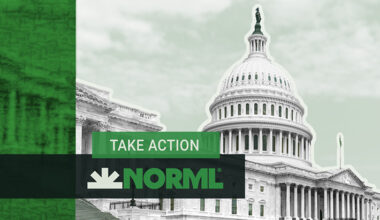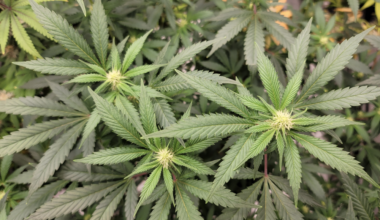Bipartisan and bicameral congressional lawmakers are filing companion bills on Wednesday that would clarify that federal “Right to Try” (RTT) laws give seriously ill patients access to Schedule I drugs, including marijuana and psychedelics like psilocybin and MDMA.
Sens. Cory Booker (D-NJ) and Rand Paul (R-KY), along with Reps. Earl Blumenauer (D-OR), Madeleine Dean (D-PA) and Nancy Mace (R-SC) will be sponsoring the legislation.
While the bipartisan measures would make a technical amendment to the text of the existing statute, the primary purpose is to clarify—in the face of Drug Enforcement Administration (DEA) objections—that RTT policy as signed into law by former President Donald Trump already means that patients with terminal health conditions can obtain and use investigational drugs that have undergone clinical trials, even if they’re Schedule I controlled substances.
It’s a point of clarification that could have a direct impact on an ongoing case against DEA, which was sued after refusing to give an oncology doctor access to psilocybin to treat his terminally ill cancer patients. Psilocybin, along with MDMA, has already advanced in clinical trials and been designated by the Food and Drug Administration (FDA) as a “breakthrough therapy.” Cannabis has also undergone requisite clinical trials.
The Senate’s three-page bill is meant to “clarify that the Federal Right to Try law applies to schedule I substances for which a phase I clinical trial has been completed and to provide access for eligible patients to such substances pursuant to the Federal Right to Try law,” according to text that was obtained by Marijuana Moment.
The expectation is that the House companion bill will be identical, but a source familiar with the planning told Marijuana Moment that they are still reviewing the text ahead of its formal introduction, which is expected to happen Wednesday afternoon.
The Senate bill contains a findings section that says there are numerous Schedule I drugs that have going through phase I trials and received the breakthrough therapy classification from FDA. There is “preliminary clinical evidence indicating that such drugs demonstrate substantial improvement over existing therapies, but eligible patients have not been permitted access to these drugs pursuant to the Federal Right to Try law,” it says.
—
Marijuana Moment is tracking more than 1,500 cannabis, psychedelics and drug policy bills in state legislatures and Congress this year. Patreon supporters pledging at least $25/month get access to our interactive maps, charts and hearing calendar so they don’t miss any developments.![]()
Learn more about our marijuana bill tracker and become a supporter on Patreon to get access.
—
To make the existing policy abundantly clear to agencies like DEA, the legislation proposes to amend statute by inserting clarifying language about what’s covered.
This development comes about six months after bipartisan members of Congress sent a letter, led by Blumenauer, requesting that DEA allow terminally ill patients to use psilocybin as an investigational treatment without the fear of federal prosecution.
In May, Booker and Sen. Brian Schatz (D-HI) separately pushed top federal officials to provide an update on research into the therapeutic potential of psychedelics, arguing that ongoing federal prohibition has stymied studies.
Federal health officials recently recognized that federal prohibition makes it harder to study the benefits of psychedelics, requiring researchers to jump through additional regulatory hoops.
In the background, DEA is expected to find itself in federal court again soon over its refusal to adhere to Right to Try statute. A doctor who petitioned the agency for access to psilocybin to treat his terminally ill patients sued last year after being denied, but the court rejected the case on procedural grounds.
Attorneys on the case have implored DEA to confirm that its decision to deny the petitions constituted a final judgment, but the agency has not explicitly replied to multiple requests for that clarification, so the lawyers said they would give DEA until close of business on Wednesday before it proceeds as if the decision was final. At that point, they plan to file another lawsuit to get to the merits of the challenge in the same federal appeals court.
“As counsel for the Petitioners in AIMS et al v DEA, seeking to forge a path to access to investigational psychedelic drugs intended to be available to those w/life-threatening conditions under state and federal Right to Try laws, we are pleased to see a bipartisan bill introduced in the U.S. Senate clarifying that the federal RTT applies to Schedule I substances,” Kathryn Tucker, an attorney with the Emerge Law Group, told Marijuana Moment.
“While it seems clear that this is the case, DEA in seeking to evade the law argues that it does not,” she said. “Amendment to eliminate any possible debate on this point could be valuable to our effort to forge this path.”
“We are engaging a multi-pronged approach to reach our objective, using litigation, congressional action and direct citizen action to ensure that patients with life-threatening conditions can access these remarkably effective investigational drugs as soon as possible,” Tucker said.
Activists including one of the plaintiffs in the Right to Try case, Erinn Baldeschwiler, staged a demonstration outside of DEA headquarters in Virginia in May, demanding that the agency allow terminally ill patients to access psilocybin therapy.
DEA is separately being sued over repeated delays in processing requests for public records related to psychedelics and marijuana.
Meanwhile, the agency recently announced that it is taking the rare step of holding a hearing on its controversial proposal to place the five psychedelic compounds in Schedule I of the Controlled Substances Act.
The agency first proposed scheduling the tryptamines—4-OH-DiPT, 5-MeO-AMT, 5-MeO-MiPT, 5-MeO-DET and DiPT—in January. And it faced significant pushback from the research and advocacy communities, receiving nearly 600 messages during a public comment period, with most opposing the rule change and requesting a hearing.
DEA’s own administrative court subsequently agreed that there was a need to hold a hearing on the matter before the prohibition could be enacted.
The agency has separately increased production quotas for the production of certain psychedelics like psilocybin in an effort to promote research, but its scheduling decisions have continued to represent obstacles for scientists.
Read the text of the Senate version of the Right to Try bill below:
DEA Sued Over ‘Unlawful’ Delays On Psychedelic And Marijuana Public Records Requests Through FOIA
Photo courtesy of Dick Culbert.
Medical Disclaimer:
The information provided in these blog posts is intended for general informational and educational purposes only. It is not a substitute for professional medical advice, diagnosis, or treatment. Always seek the advice of your physician or other qualified healthcare provider with any questions you may have regarding a medical condition. The use of any information provided in these blog posts is solely at your own risk. The authors and the website do not recommend or endorse any specific products, treatments, or procedures mentioned. Reliance on any information in these blog posts is solely at your own discretion.







